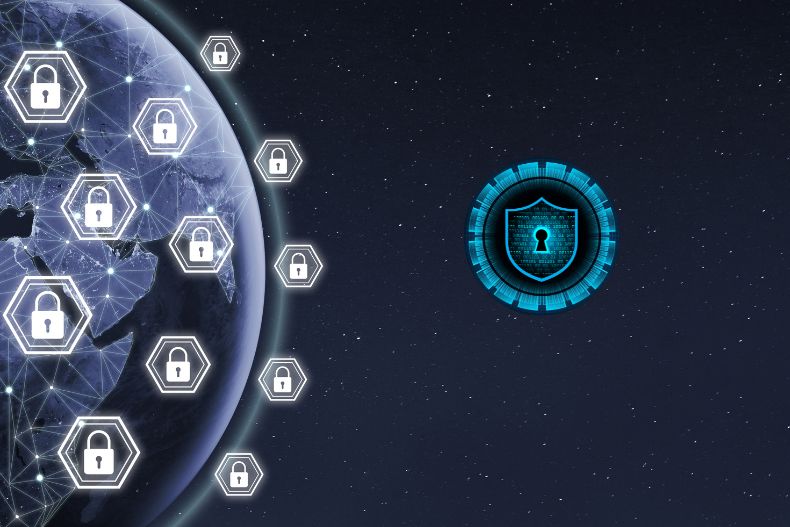Have you ever wondered how to prove your identity online without giving away personal details? In today’s digital space, traditional identity verification methods often require users to share sensitive information, raising concerns about privacy and security. This has led to the rise of decentralized identity solutions, a new approach that gives people control over their information while keeping it safe from misuse.
With growing concerns about data breaches and unauthorized access, decentralized identity is becoming an essential tool for individuals and businesses. It allows users to verify themselves without depending on centralized authorities, making online interactions more secure and private. But how exactly does it work, and why is it becoming so popular?
Let’s explore the benefits and real-world impact of decentralized identity solutions.

What Is Decentralized Identity?
Decentralized identity is a verification method that does not rely on a single authority to manage or control user credentials. Instead, individuals can securely store and manage their identity information through blockchain technology or similar decentralized networks.
Unlike traditional identity systems, where personal data is stored in large databases controlled by corporations or governments, decentralized identity allows people to hold their credentials directly. This removes the need for middlemen and reduces the risks associated with centralized storage.
How Decentralized Identity Works
Decentralized identity solutions use blockchain technology or distributed ledgers to verify and manage user credentials. This system ensures that personal information remains in the individual’s hands while allowing verification when needed.
When a person creates a decentralized identity, they receive a unique identifier stored in a secure digital wallet. This identifier can be used to verify their identity without exposing personal details. Since the information is stored across multiple nodes rather than a single server, the risk of data theft is significantly reduced.
As blockchain technology continues to evolve, it remains a key innovation in securing online identities—just one of the emerging tech trends to watch for in 2025.
Why Decentralized Identity Is Becoming Popular
Many people are shifting toward decentralized identity because it offers a better way to manage personal information. Instead of trusting third-party organizations with sensitive details, individuals have complete control over sharing and using their data.
Another reason for its growing popularity is that it provides a secure way to verify identities across different platforms. For financial transactions, healthcare services, or online applications, decentralized identity ensures that only necessary information is disclosed while keeping everything else private.
The Key Benefits of Decentralized Identity
Decentralized identity solutions bring several advantages, making them an ideal choice for modern digital interactions. Here’s why they are making a difference:
1. Privacy and Security
One of the main benefits of decentralized identity is that it protects personal information from being misused. Traditional identity systems store user data in centralized servers, which can be targeted by cybercriminals. Decentralized identity, on the other hand, removes this risk by ensuring that users control their credentials.
2. Reduced Risk of Identity Theft
With identity theft becoming a common issue, decentralized identity helps reduce the chances of personal data being stolen. Since verification happens without exposing full details, it prevents unauthorized access and keeps personal records safe.
3. Convenience for Users
Decentralized identity eliminates the need for multiple passwords and repeated verifications across different platforms. Users can prove their identity with a single digital credential, making online interactions smoother and more efficient.
4. Better Access to Services
For individuals who lack traditional identification documents, decentralized identity provides an alternative way to prove who they are. This is especially beneficial for people in remote areas or those who do not have access to government-issued IDs.
5. Stronger Trust Between Users and Organizations
Businesses and service providers benefit from decentralized identity because it allows for secure, verifiable customer interactions. Since users have control over their credentials, companies can ensure they deal with real individuals without handling unnecessary personal data.
How Decentralized Identity Solutions Are Being Used Today
Several industries are already adopting decentralized identity to improve security and user experience. From online banking to healthcare, these solutions are helping organizations verify users while maintaining privacy.
One example of this can be seen in financial services, where customers can use decentralized identity to complete transactions without sharing their full personal details. This reduces fraud and makes online banking safer. Another example is online platforms that require identity verification for secure logins, helping users access accounts without exposing sensitive data.
In addition, decentralized identity solutions like world create networks where people can safely store and manage their credentials. These systems allow users to prove their identity without depending on large corporations, offering a more independent and secure verification process.
What the Future Holds for Decentralized Identity
As technology evolves, decentralized identity is expected to become even more widespread. Many organizations are already working on integrating these systems into their platforms, making online interactions safer for everyone.
Governments and businesses are also exploring decentralized identity to streamline verification processes while reducing reliance on centralized databases. This shift toward self-managed identities could transform how people interact with digital services, providing a more secure and user-friendly experience.
Final Thoughts
Decentralized identity solutions are changing the way people verify themselves online. These systems provide better security, privacy, and convenience by allowing users to control their credentials. From reducing identity theft to making online transactions safer, decentralized identity creates a more secure digital space for everyone. As more industries adopt this technology, it will continue shaping the future of online interactions, making the Internet safer for all.